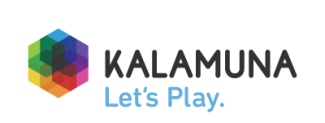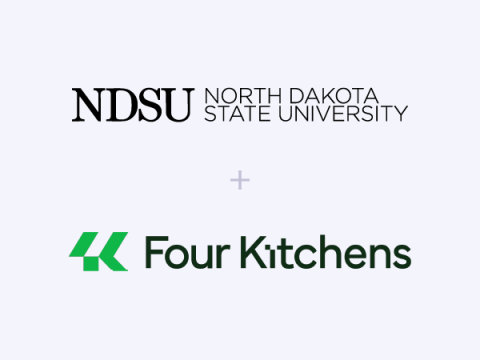Kalamuna
Image

Drupal for the Few?
While Squarespace and WordPress allow you to spin up a reasonably functional website in just a few clicks, Drupal isn’t so easy. If you want to see a website, you often need to hire an agency to do some prototyping. This extra step can give Drupal a significant barrier to entry, and there are only so many Drupal developers to go around.
"At Kalamuna, we believe Drupal’s destiny lies in lowering this barrier to entry and empowering newcomers," Kalamuna Co-Founder Pirog said. "That’s what we try to do."
Building Products Simple Enough for Anyone, Powerful Enough for Drupal Pros
Most Drupal products are designed to give other developers a kickstart. Kalamuna builds fully-baked products simple enough for anyone to use right out of the box, but powerful enough for Pirog’s team to use internally. For example, a user can download Kalabox and set up a modern web server with Drupal power tools and a native Linux machine. “Users don’t even need to know what Linux means," Pirog said. "Just click the button, and it works.”
Kalamuna has been using Pantheon to build products like these, as well as to build and manage their clients’ websites.
Spinning up Sites with Pantheon
Building turnkey distributions is one of Kalamuna's areas of expertise. They’ve been using Pantheon to allow clients, such as Arizona State University, to easily spin up similar use case sites. ASU WebSpark is a quick and easy way to spin up an ASU-branded Drupal site. WebSpark sites are responsive and mobile-ready out-of-the-box, featuring a number of style options and tools to make layout and content creation a breeze.
We’re already using Pantheon to allow clients to scale their website development efforts. Now Pantheon for Agencies allows us to scale our own client service as well.
Before Automation:
1. Minor updates required excessive force
For most of Kalamuna’s support clients, keeping websites up-to-date used to mean going into each website, one by one. This required a reasonably advanced developer, and took 1-2 hours. “As you can imagine, good developers would rather be doing other things,” Pirog explained. “Worst-case scenario, something breaks. The update pathways don’t work. Then you’re looking at 10, 20, even 30 hours. It doesn’t make any sense to have a good developer go in and click a button.”
2. 2-hour fix. Multiply by 20 sites.
In the past, Pirog has spent 1-2 hours fixing something on one client’s site, just to repeat the process all over again for every other client site. For 20 sites, that’s up to 40 hours for one simple fix.
3. Spinning up new sites took too long, even with a distribution.
Before Pantheon, Pirog’s team would instantiate a Panopoly project and connect to their feature server, which involved 2-4 hours of setup time. Cash-strapped clients couldn’t afford to pay them to do that.
4. Support was pretty good, not “OMG!!!”
According to Pirog, clients need two kinds of support. Updates to make them feel safe, and emergency fixes. For Kalamuna’s most basic support offering, they used to spend the vast majority of their time making clients feel safe with system and security updates. “That’s fine,” Pirog recalled. “But it’s not going to make them fall out of their chairs with gratitude and excitement. We want to focus our support hours on things clients can see and touch, not on things with less perceived value, like security updates.”
After Pantheon One for Agencies
After a couple weeks of daily use, Kalamuna decided to move all their clients (about 30 sites) and people to Pantheon for Agencies.
Here’s how:
1. Standardizing = faster time to market
Pirog’s team is saving about 2 hours on each initial project spinup, thanks to the starter kit they keep on Pantheon. Their common codebase applies to 95% of their sites, and includes lots of apps. “The more we refine, the more we save and can do awesome things,” Pirog said. “We use Panopoly and extend that with Kalatheme, another easy-to-use and powerful Kalaproduct. We save tons of money on these normal tasks, so we can focus on that extra little piece that makes a project different and special. The savings will increase as we build it out.”
“The workflow is nice” Pirog continues. “You can instantiate our Kalamuna base distribution, a Panopoly subdistro and burgeoning Drupal.org distribution called HotSauce! Then you go through the install profile, clicking the features and the theme you want to have. That saves time later in the project. It also allows us to do instant prototyping for clients, turning high-level specs into a prototype within 3-4 hours. More importantly, anyone at Kalamuna can do this—not just our developers. That’s a huge value add.”
2. OMG! Support, no advanced developers needed
The one-click update functionality makes Kalamuna’s lower-level support 50% more efficient than before. One person can support 20 clients now, instead of just 10. Many tickets concern common problems that are shared by clients on their base distribution.
“Whenever we see a support request that’s an auto-update, it gets kicked to one of the five people who didn’t used to do that sort of thing,” Pirog said. “People who don’t have solid levels of technical competence can go in and click the button. It’s really fast. If it fails, they tag it for escalation to an actual developer. It really makes the workflow better and more efficient, presenting huge savings for us. Because our lower support is so efficient, we’re now able to quickly resolve the support tickets that matter most to our clients on a day-to-day basis. We’re resolving these mid- to higher-level tickets 15% faster.”
3. Update to the 10th power
Now that Kalamuna is standardized on Pantheon, a fix for one client also improves the other clients’ websites. As they continue to make improvements to their base starter kit, everyone benefits.
4. Frees up developers
Now Kalamuna can send an email to anyone who’s available to do a one-click update. This frees up their mid-level and advanced developers to focus on problems that make more sense to them. Not only does this make Pirog’s team happier, but it also gives them a pathway to bring in other junior people, so they can get a feel for Drupal. Even project managers can step in.
The biggest value isn’t in how much time we’re saving, but in whose time we’re saving.
Advice to Other Agencies
“If you care about doing great work, then you also care about saving money on repeatable things,” Pirog noted. “Good clients hate inefficiencies just as much as we do. Standardizing saves you money so you can focus on things that make your work great. That’s the most valuable thing about Pantheon for Agencies.”


